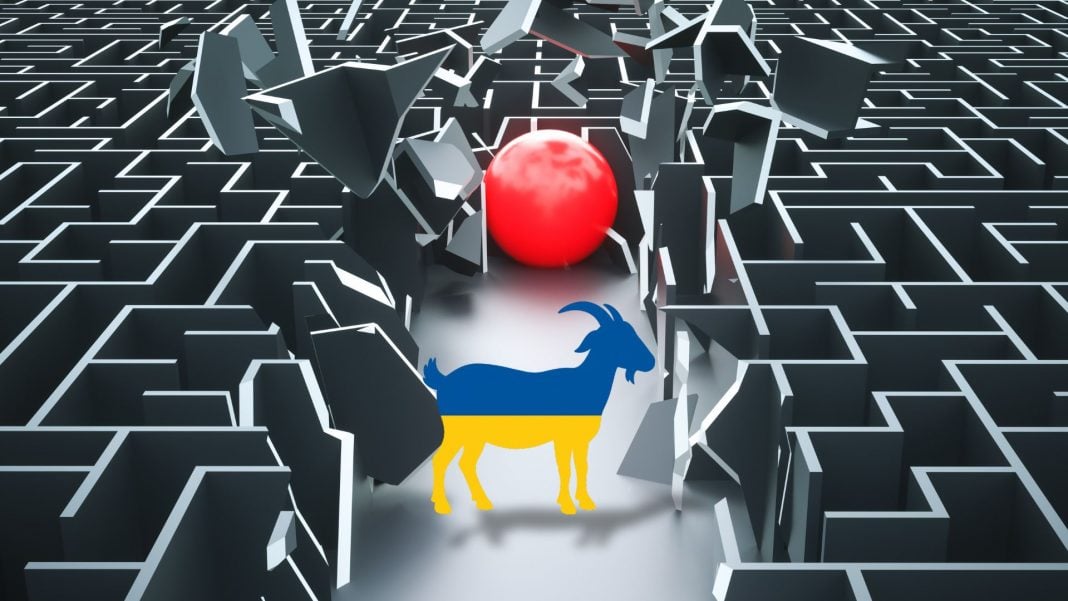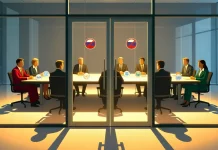Ukrainians are given priority in hospitals, while Poles are denied treatment – this disinformation narrative has been circulating intensively in the Polish information space recently, mainly on social media. It is often spread by politicians associated with Grzegorz Braun and his Confederation of the Polish Crown, but also by those from the Confederation, which is now perceived as a “normal” member of the political scene, rather than an extreme and marginal group. However, those associated with Braun are no longer marginal – in recent polls, almost 10% of respondents expressed their support for the Confederation of the Polish Crown.
For clarification, the Confederation of Freedom and Independence is a party formed as a result of the transformation of Janusz Korwin-Mikke’s coalition with the National Movement, formed before the 2019 European Parliament elections. Currently, the Confederation is co-founded by the National Movement (Krzysztof Bosak) and New Hope (Sławomir Mentzen), and until recently also by the Confederation of the Polish Crown (Grzegorz Braun), which left the Confederation after Grzegorz Braun was expelled from the party. The Confederation is a right-wing party, although with a rather inconsistent ideology – New Hope is extremely liberal in economic terms, while the National Movement is a nationalist party that recognizes social solidarity. Although the Confederation was long considered extreme, it has gradually entered the political mainstream in Poland, gaining support of several percent in various polls and elections. At the same time, the Confederation of the Polish Crown and Grzegorz Braun express extreme views, including Holocaust denial. Both parties use anti-Ukrainian narratives in their rhetoric, demanding that aid to Ukraine and social benefits for Ukrainians in Poland be reduced or suspended.
According to various narratives, Ukrainians are allegedly receiving housing, benefits, and pensions. They receive 800+ without working. At the same time, they drive expensive cars, buy apartments en masse (thereby inflating their market prices), and wear designer clothes. And they do not contribute to the budget because they send money to their families in Ukraine. And, of course, this is done by young men who have arrived en masse in recent months instead of going to the front. It does not matter that these narratives are mutually exclusive. It does not matter that, according to official data, Ukrainian citizens in Poland contribute more to the budget than they receive from it, that the social security contributions of those who work more than cover the costs of medical treatment and benefits for those who cannot work, such as the elderly. Disinformation narratives are not about facts, but about effectively harnessing public sentiment.
Russia’s full-scale invasion of Ukraine came immediately after the Covid-19 pandemic. The global economy, including Poland’s, had not yet recovered from the crisis caused by the enormous strain on healthcare services and the disruption of supply chains, and already had to face massive disruptions in the grain and fossil fuel markets. The standard of living in many countries began to decline, and at the same time, refugees from Ukraine began to arrive.
Problems with access to healthcare, real estate costs and availability, ever-increasing energy costs, and finding a place in the labor market are not fiction. This is the reality that many people find themselves in. Those who, just a few years ago, went on vacation twice a year, now find that they sometimes have little left in their accounts at the end of the month, not to mention vacations.
Are Ukrainians to blame for this? Of course not. But Ukrainians are nearby, they are close, and they become an easy explanation for complex problems. It is not some fleeting and uncontrollable situation on the global markets, nor complex economic processes, but a neighbor who has arrived and is trying to cope with their own challenges.
Anti-Semitism in Germany in the 1920s and 1930s grew largely out of the feeling that Jews were making life worse for Germans. They were blamed for unemployment, economic crises, etc. The mechanism of seeking easy explanations for difficult problems is a political tactic that has been known for years, if not centuries. Redirecting frustration and social anger towards a defenseless victim – in this case, Ukraine, which is defending itself against Russia’s criminal aggression, and Ukrainian women and children who have left the country to protect themselves and their children.
The emergence of anti-Ukrainian slogans, and above all their popularity, does not necessarily have to be the result of some deep-seated aversion to Ukrainians or Ukraine. For a large proportion of ordinary people who have succumbed to this narrative, it is an expression of their own frustration, a search for an explanation for problems that are beyond their control. Of course, this is no excuse, but it does help to understand the reasons for this particular social reaction and to mitigate its effects.
Narratives of this type are all the more dangerous because they do not always originate in the Kremlin or Olgino. Blaming Ukrainians for the problems of others can be a spontaneous social reaction, which also makes it difficult to eradicate, because labeling someone a stooge or a Putin troll can easily cause that person’s attitude to harden — because it should be mentioned that in Poland, even among anti-Ukrainian people, few have a positive attitude towards Russia. Making these people aware that only Moscow benefits from promoting such narratives must therefore be undertaken with some caution, and it seems that today it is necessary to make them aware of this, because such tendencies are reaching a critical mass that can no longer be simply suppressed with a cordon sanitaire. There was time for this earlier, but in the name of freedom of speech – and also due to free access to the Internet – we allowed anti-state information bubbles to grow, focusing first on anti-vaccination topics and then smoothly moving on to anti-Ukrainian ones.
There are no easy solutions. Just as there are no easy answers to complex problems. This does not mean that people will not look for them – because that is how human psychology works.
PMB





